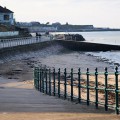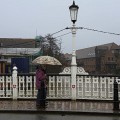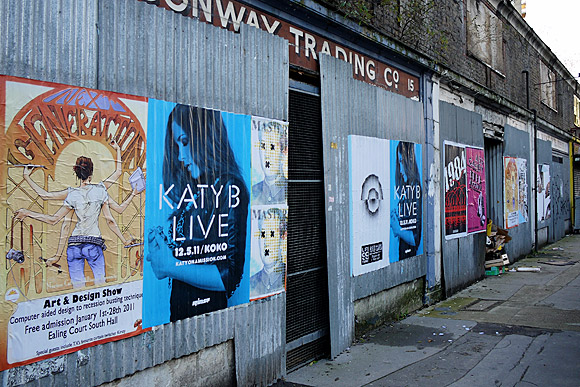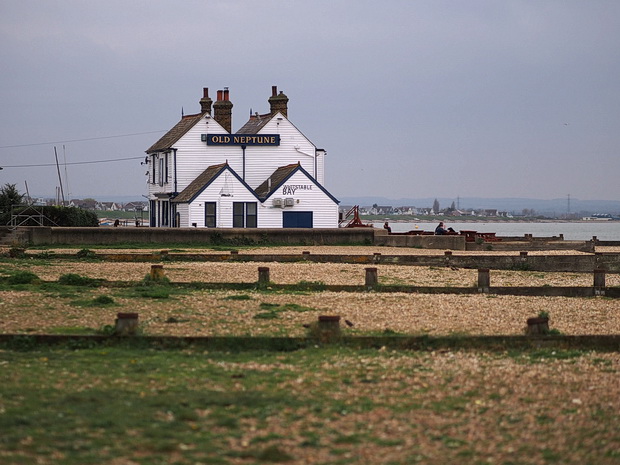
Located 5 miles north of Canterbury, the seaside town of Whitstable is famous for its oysters, which have been collected in the area since at least Roman times. It’s about an hour and half from London by train – here’s some photos from a short visit last week.
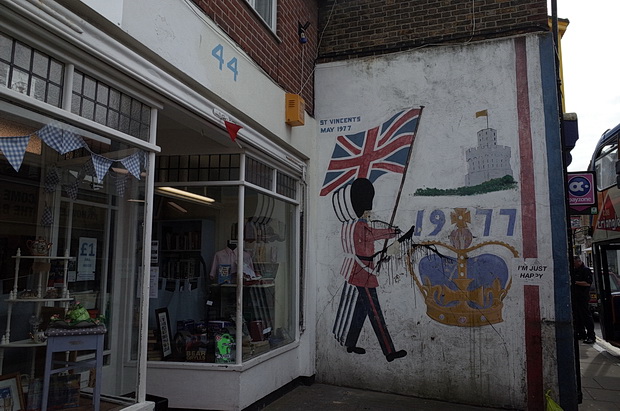
Whitstable dates back to pre-Domesday Book times, with archaeological digs finding evidence of human inhabitation during the Palaeolithic era, the Bronze Age and the Iron Age.
Above is a slightly tatty mural celebrating the Royal Jubilee of the 1977.
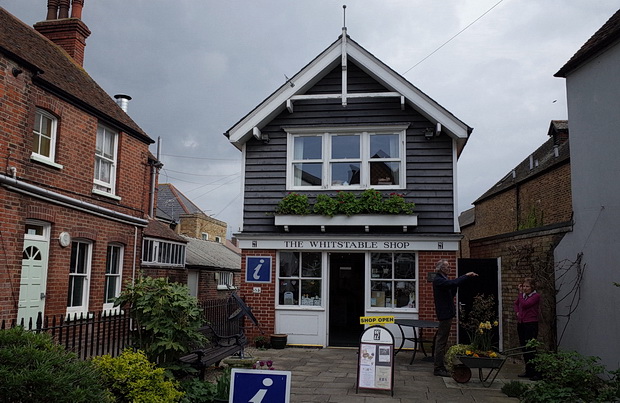
The Whitstable Shop at 34 Harbour Street is run by the Whitstable Improvement Trust and provides tourist information.
The shop also sells a large variety of local books, cards, unusual gifts and locally made items, and the garden is used in the summer months by local craftspeople demonstrating their skills.
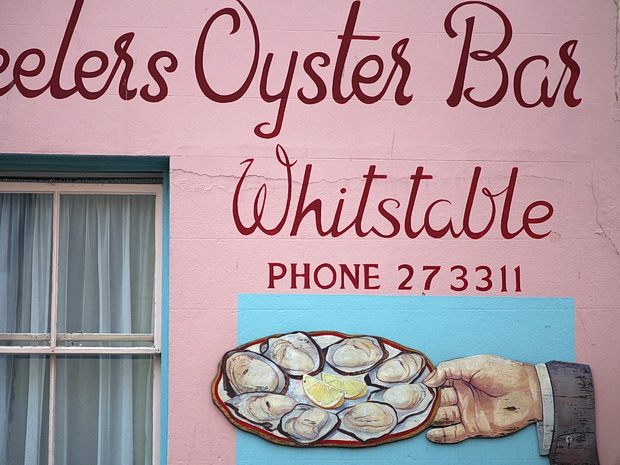
Wheelers Oyster Bar on the High Street claims to be the oldest restaurant in the town. Read more on their website.
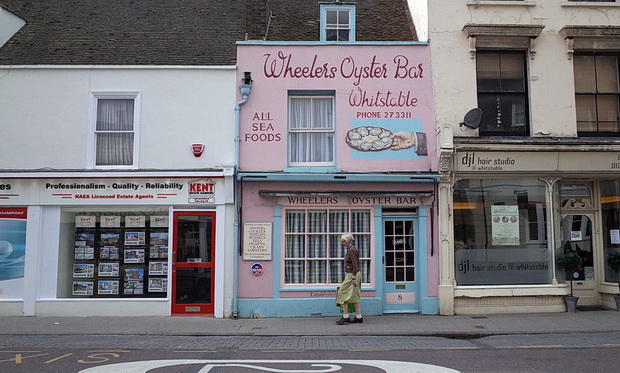
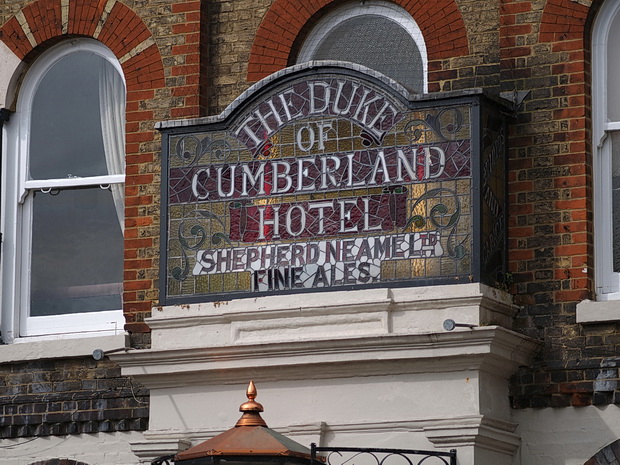
Detail from the imposing frontage of the Duke of Cumberland pub, a Grade II listed building in the heart of Whitstable. The pub’s website reports that there has been an inn on this site for more than 300 years.
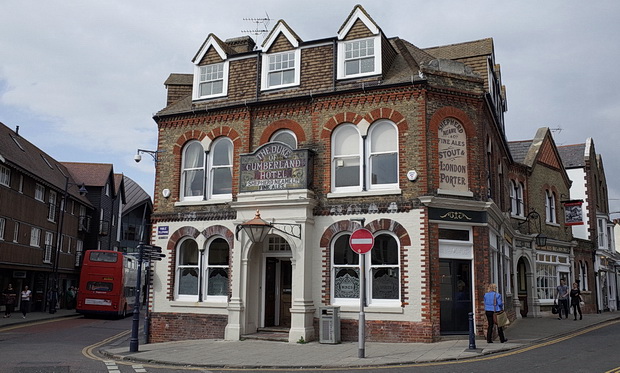
Up until 1747, it was known as the Noah’s Ark, when landlord Robert Chandler renamed it Duke William in honour of the Duke of Cumberland who, a year earlier, had crushed the Scottish rebellion at Culloden.
Used as the headquarters for local oyster and dredger men, the pub was rebuilt in splendid late Victorian style in 1878 after a major fire in 1866.
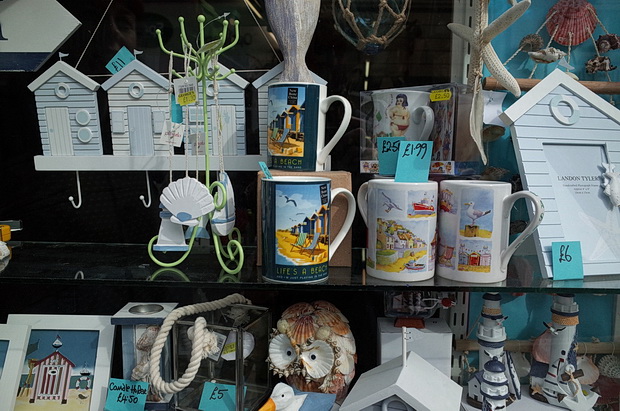
Tourist shop window detail.
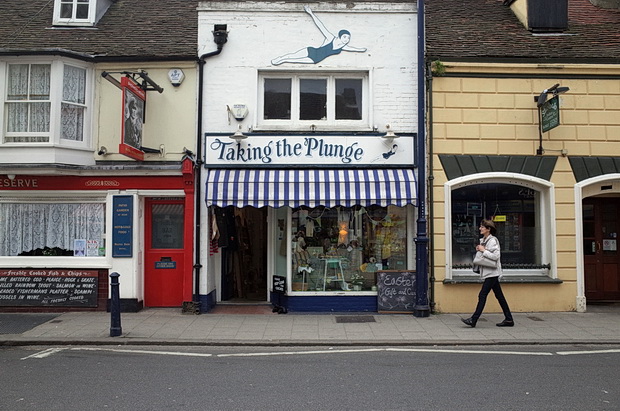
Taking the Plunge on the High Street sells jewellery, bags, home interiors and local handmade gifts.
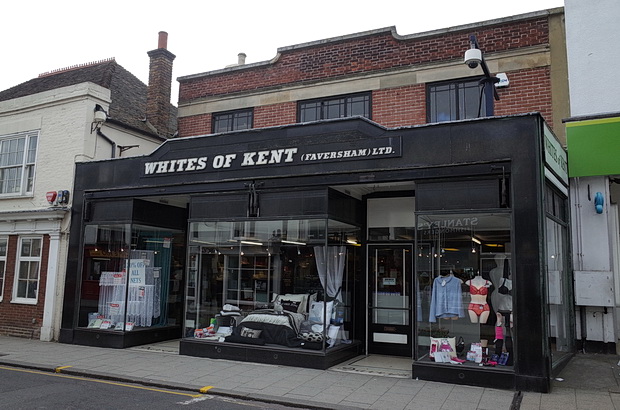
I loved this 1960s style shopfront, one of five stores owned by Whites Of Kent.
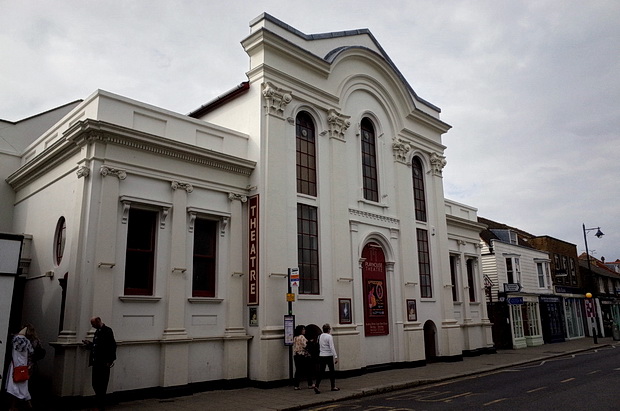
Whitstable Playhouse Theatre.
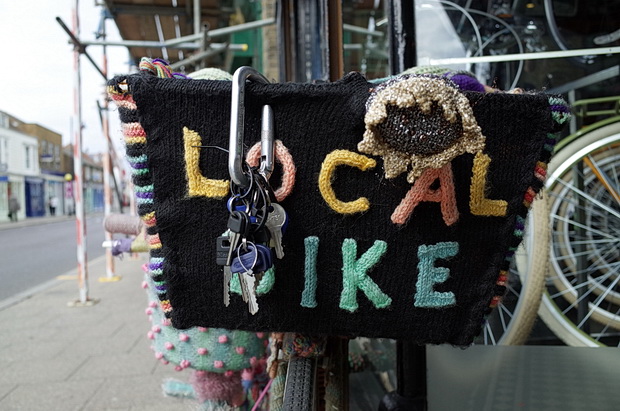
Knitted bike bag.
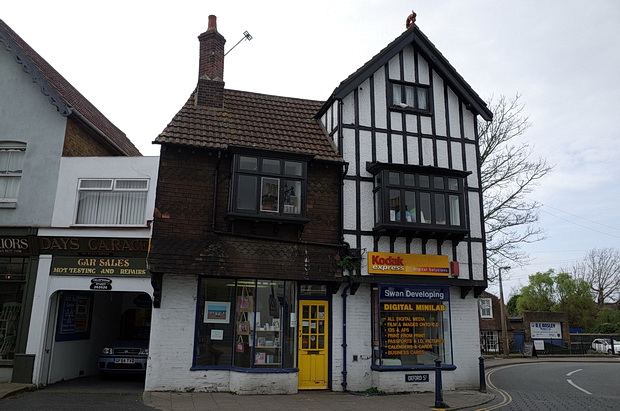
Quirky building, somewhat comprised by the gaudy advertising.
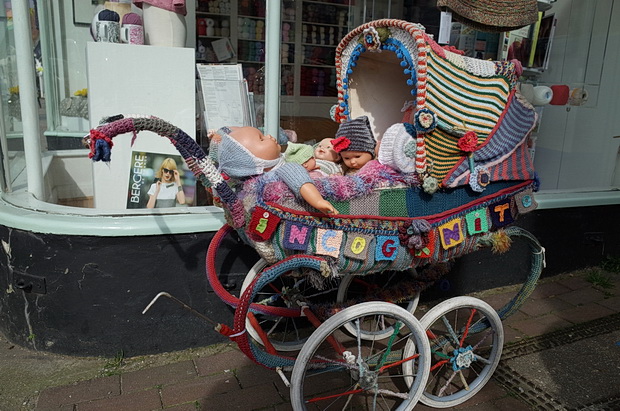
Knotted pram covering.
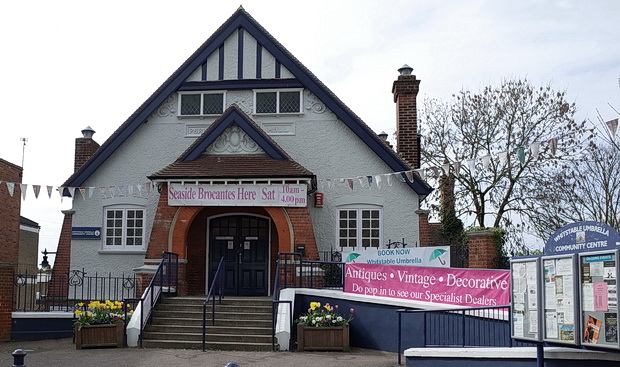
Whitstable Umbrella Community Centre.
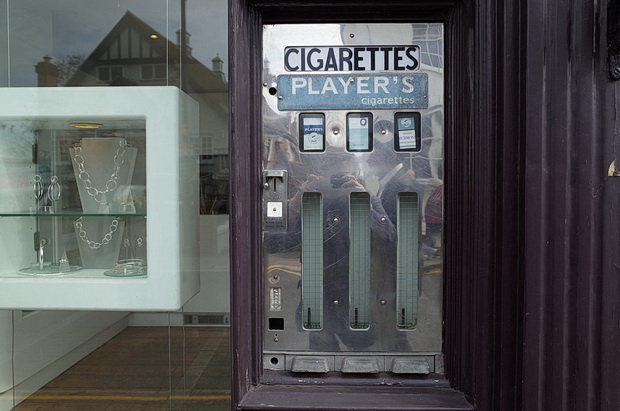
Old cigarette vending machine, with examples of the original Player’s Navy Cut, Bachelor and Richmond brand packs visible.
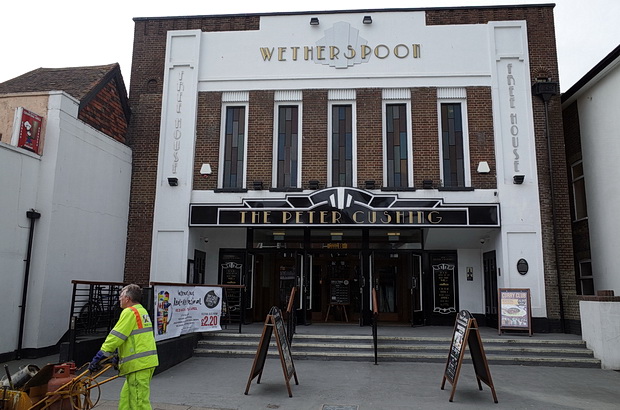
Opening in August 2011, the Peter Cushing pub took over the premises of the former cinema and bingo hall known as The Oxford.
The pub is named after legendary Hammer Horror star and erstwhile Whitstable resident, Peter Cushing.
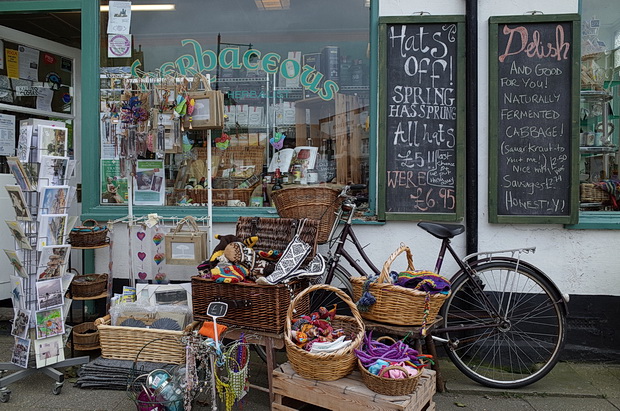
The exterior of Whitstable’s Natural Shop, Herbaceous.
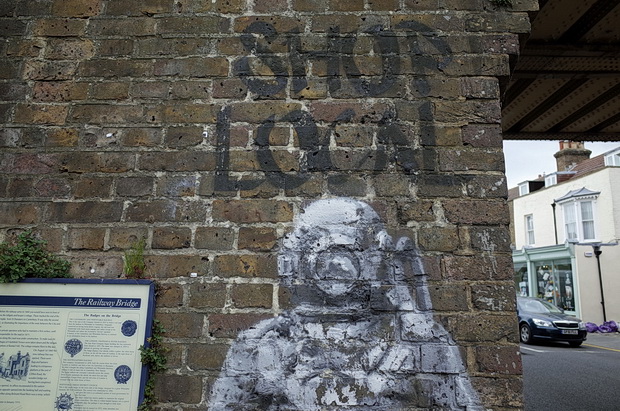
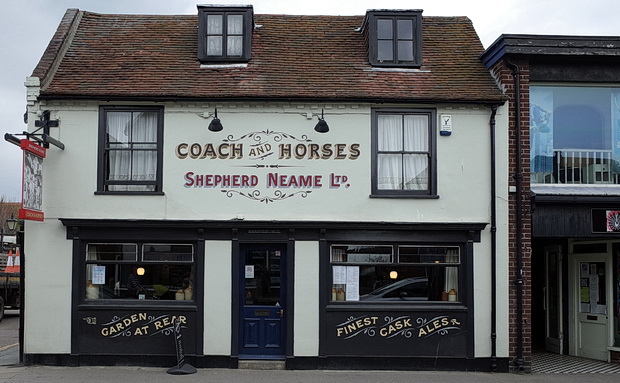
The traditionally decorated Coach & Horses pub, which dates back to the 17th century.
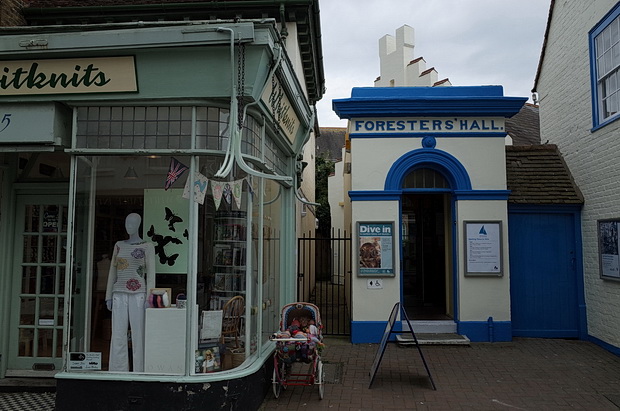
Entrance to the Whitstable Museum and Gallery, located inside the former headquarters of the Ancient Order of Foresters.
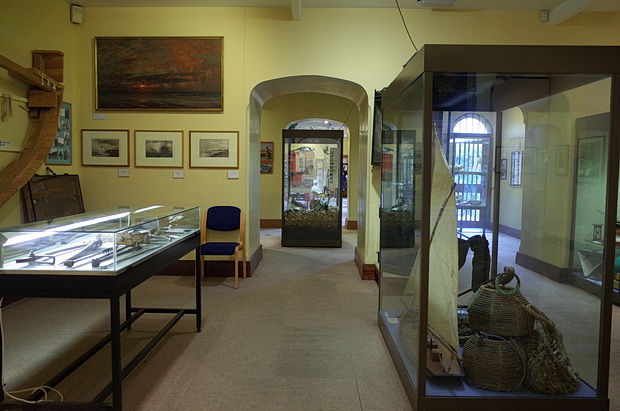
It costs £3 to get into the museum and – to be honest – there’s not an awful lot in there.
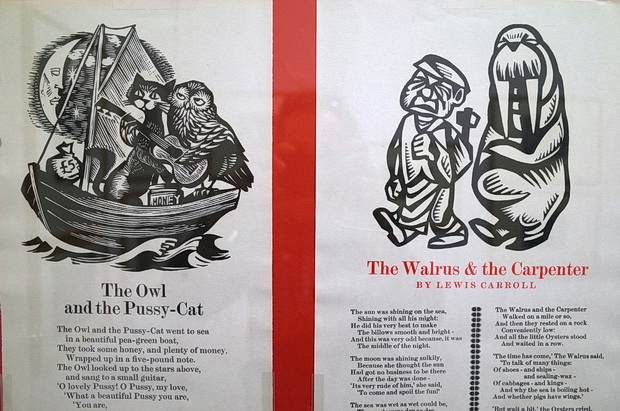
What I did like though was the temporary exhibition of prints by artists living and working in East Kent, including some wonderful woodblock prints by Ben Sands.

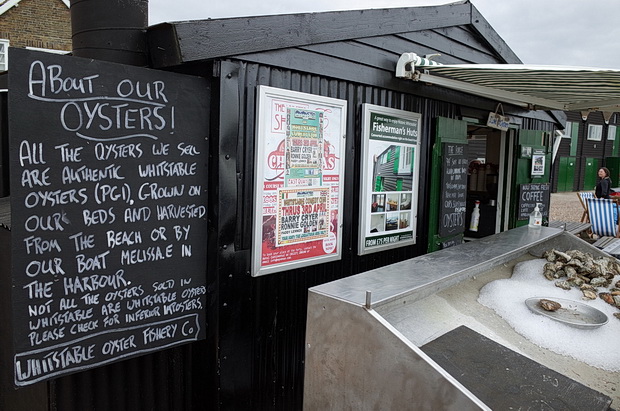
Oyster stall near the sea front.
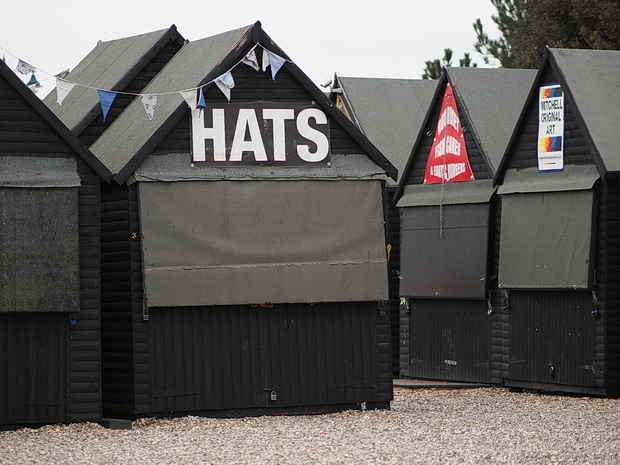
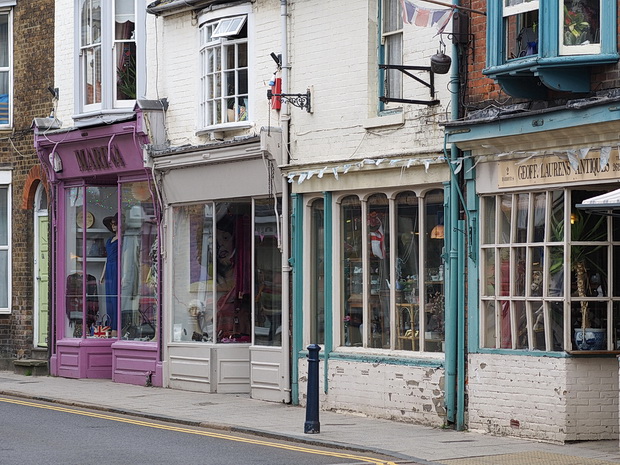
In 2010, Whitstable was found to be the town with the highest proportion of independent shops in the UK, and it lends the town a really charming, old fashioned air.
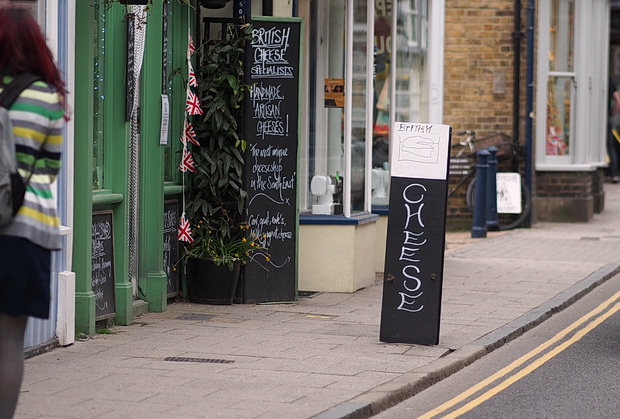
Cheese!
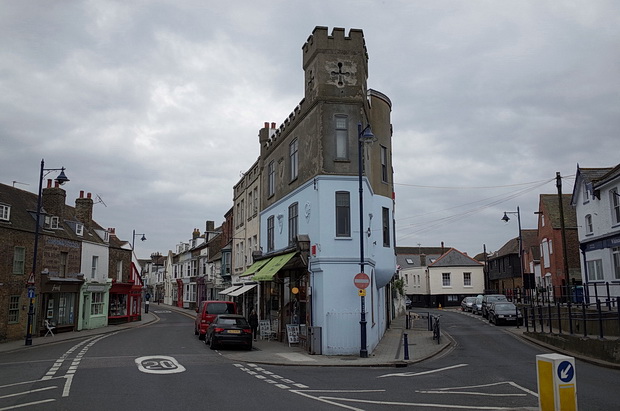
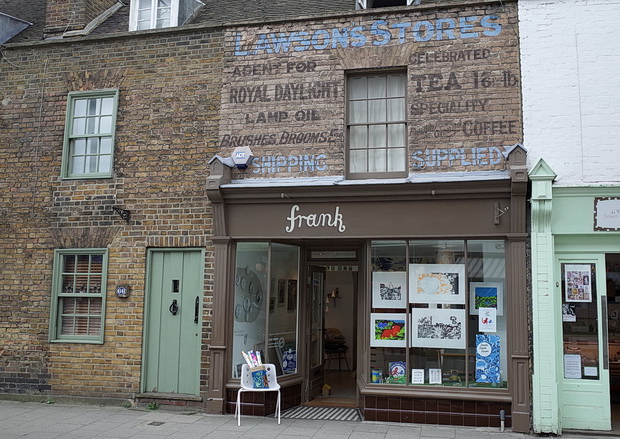
Victorian advertising can be seen above the Frank store. Here’s some more scenes of shops around Whitstable:
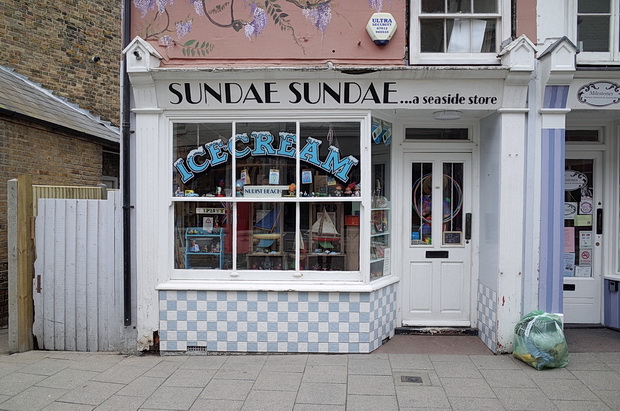
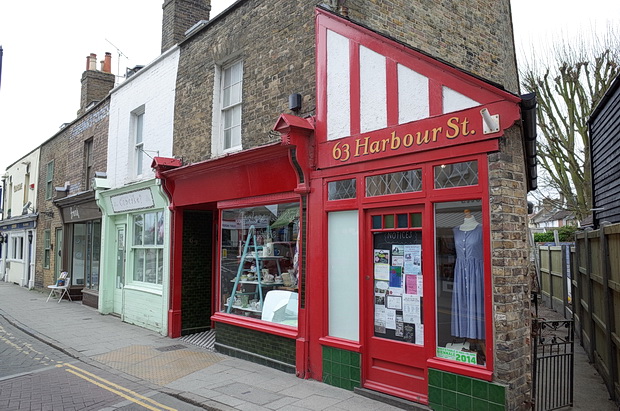
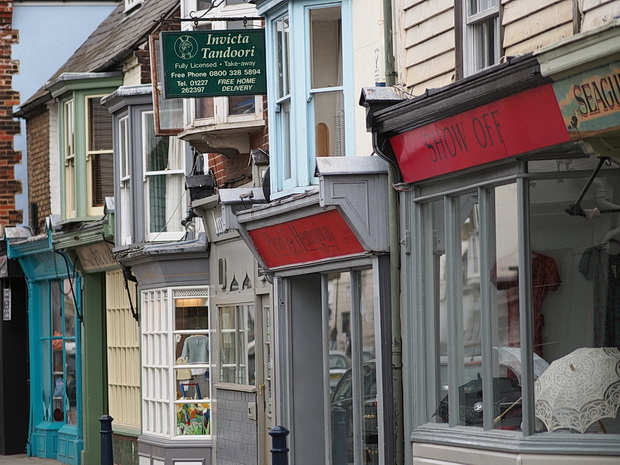
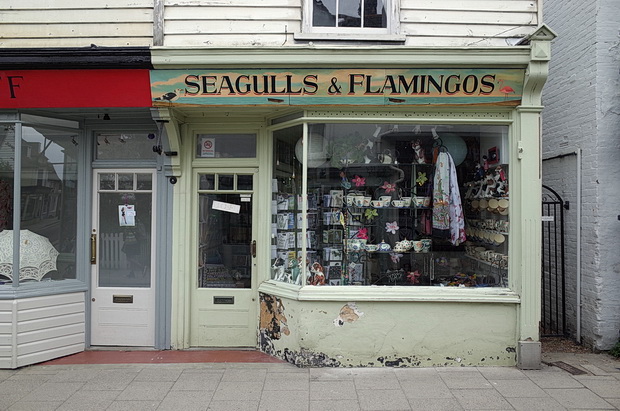
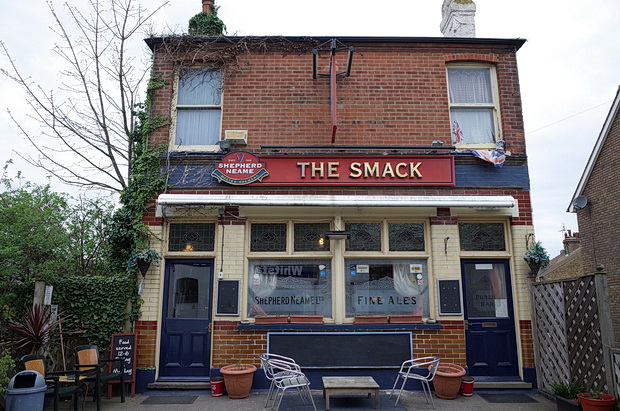
Not named after local druggies, but after the single masted fishing boats that used to deliver Whitstable’s famous oysters, The Smack is made up of a pair of old fisherman’s cottages.
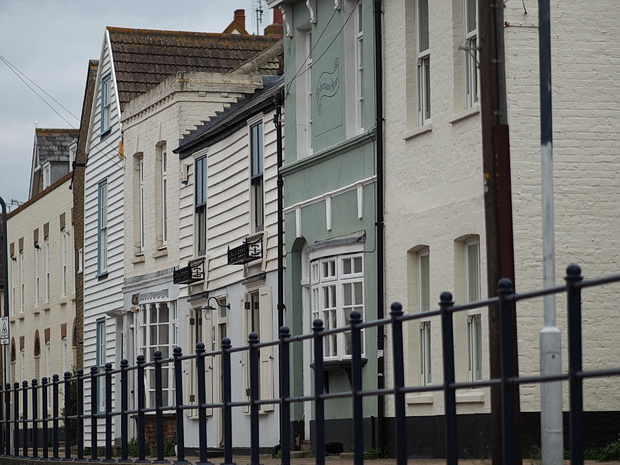
Charming wood-fronted buildings along Island Wall.
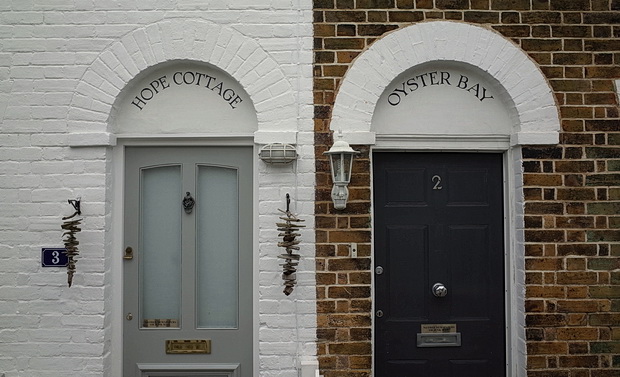
Read more about Whitstable on Wikipedia.

